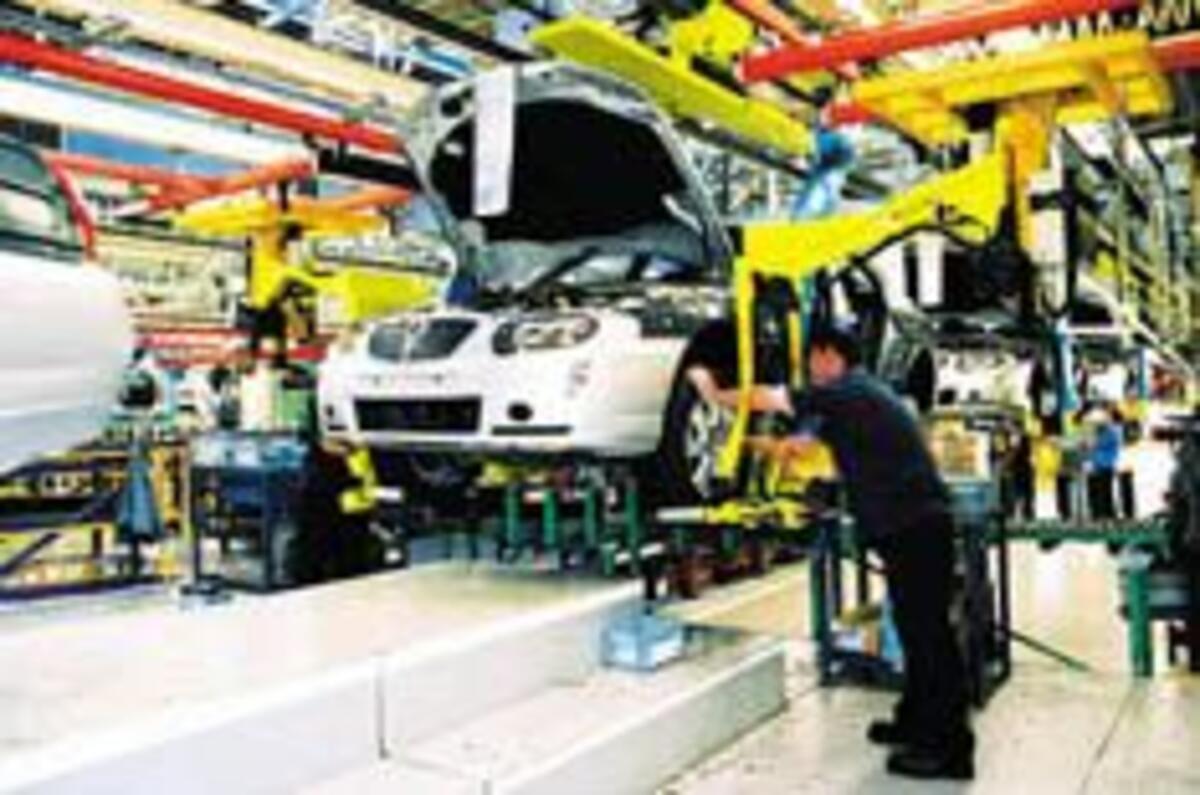MG Rover is planning to develop at least three new models in collaboration with Shanghai Automotive Industry Corporation, and it’s also likely that SAIC will build the Rover 75 in China. The two companies have signed a technology transfer agreement, and although details have yet to be unveiled, it’s thought that Chinese build of the 75 could form the first stage of the collaboration. If this part of the deal goes ahead, MG Rover would earn significant sums in return. Chinese government approval, essential in such deals, is expected early next year.
SAIC is the biggest manufacturer in China, and already has collaborative deals with General Motors and Volkswagen. But it only builds models under licence from both manufacturers – the MG Rover deal differs in that it will allow SAIC to jointly develop new cars for the first time and acquire vehicle design and engineering expertise. SAIC is ambitious – it has previously announced that it wants to be the world’s sixth largest car-maker by 2020.
Collaboration on the the much-delayed new medium car, codenamed RD/X60, is also expected to be a central part of the deal. The companies are also expected to work on a new supermini to replace the Rover 25 and MG ZR, as well as a new executive model that will eventually replace the 75. This car will be of particular interest to SAIC, as executive saloons are popular in China.
MG Rover has already sent people to China to develop a product plan with SAIC, and it is planning to send staff over as part of the venture. SAIC will also be sending personnel to Longbridge in preparation for the start of 75 production in China. This will be no small task , as domestically-made models must contain at least 40 per cent local content to avoid hefty local tariffs, and that must include either the bodyshell or the engine. Meanwhile MG Rover has announced its financial results for 2003, which saw it lose £77million before taxes, a reduction on 2002’s £95million, but a long way from the break-even that had previously been forecast. MG Rover now says that it will reach break-even during 2005, although the year-end figure will remain negative.
The MG Rover board has added another £3.6million to its pension fund – payments some will consider inappropriate given continuing losses and fast-falling sales.
MG Rover has seen a 30 per cent drop in European sales over the past three months, partly caused by shortages of the new facelifted models, but the underlying difficulty is an ageing range. The company plans a renewed marketing effort to counter this, which will see a clearer separation of the MG and Rover brands. Dealer recruitment, particularly in mainland Europe, is also planned. The aim is restore sales to the 2003 level of around 140,000 units. Less of a priority, but still on the agenda, is new attempt to buy the Daewoo factory in Poland, SAIC’s arrival reviving this plan.Talks have reopened with the Polish government, but it’s not clear what the factory will make if the initiative succeeds. Richard Bremner




Add your comment